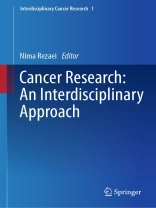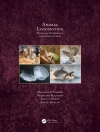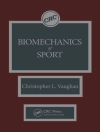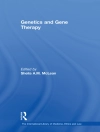Cancer is a major public health concern and one of the leading causes of death. There is no simple solution for this complex disease, therefore interdisciplinary approaches might help to find solutions to many unanswered questions and challenges about cancer. The rapid flow of interdisciplinary research in cancer during recent years has increased our understanding of the nature of cancers. Such interdisciplinary approaches could be helpful for both the diagnosis and the development of more effective therapeutic strategies.
The “Interdisciplinary Cancer Research” series publishes comprehensive volumes on different cancers and presents the most updated and peer-reviewed articles on human cancers. Over the past decade, increased cancer research has greatly improved our understanding of the nature of cancerous cells which has led to the development of more effective therapeutic strategies to treat cancers. This interdisciplinary series is of special value to researchers and practitioners working on cell biology, immunology, hematology, biochemistry, genetics, oncology and related fields. This is the main concept of Cancer Immunology Project (CIP), which is a part of Universal Scientific Education and Research Network (USERN).
Jadual kandungan
Interdisciplinary Approaches in Cancer Research.- Role of Immune Cells in the Tumor Microenvironment.- Spatial Transcriptomic Approaches for Understanding the Tumor Microenvironment (TME).- Role of Mesenchymal Stem/Stromal Cells in Cancer Development.- Cancer-associated Fibroblasts and Their Role in Cancer Progression.- The Role of Tumoroids in Cancer Research.- Myokines Expression in Cancer Cachexia.- Epigenetics in Cancer Biology.- Epigenetic Regulation of Cancer by Natural Touch: Phytochemicals and Epigenetic Regulation.- Telomerase Reverse Transcriptase in Humans: From Biology to Cancer Immunity.- Molecular Mechanisms of Metal-induced Carcinogenesis.- Epi-drugs Targeting RNA Dynamics in Cancer.- Oncologic Emergencies: Pathophysiology, Diagnosis, and Initial Management.- Malignancies in Inborn Errors of Immunity.- Hematopoietic Stem Cell Transplantation in Patients with Inborn Errors of Immunity and Malignancy.- Personalized Immuno-oncology with Immunodeficiency Mouse Models.- Allergy and Cancer: New Perspectives.- Depression and Cancer: the Inflammatory Bridge.- Impact of Cancer-Related Sarcopenia on Systemic Immune Status.- Surveillance of Subclinical Cardiovascular Complications in Childhood Cancer Survivors: Exercise as a Diagnostic and Therapeutic Modality.
Mengenai Pengarang
Professor Nima Rezaei gained his medical degree (MD) from Tehran University of Medical Sciences and subsequently obtained an MSc in Molecular and Genetic Medicine and a Ph D in Clinical Immunology and Human Genetics from the University of Sheffield, UK. He also spent a short-term fellowship of Pediatric Clinical Immunology and Bone Marrow Transplantation in the Newcastle General Hospital. Professor Rezaei is now the Full Professor of Immunology and Vice Dean of Research and Technologies, School of Medicine, Tehran University of Medical Sciences, and the co-founder and Head of the Research Center for Immunodeficiencies. He is also the Founder of Universal Scientific Education and Research Network (USERN). Prof. Rezaei has already been the Director of more than 100 research projects and has designed and participated in several international collaborative projects. Prof. Rezaei is the editor, editorial assistant, or editorial board member of more than 40 international journals. He has edited more than 50 international books, has presented more than 500 lectures/posters in congresses/meetings, and has published more than 1, 200 scientific papers in the international journals.












